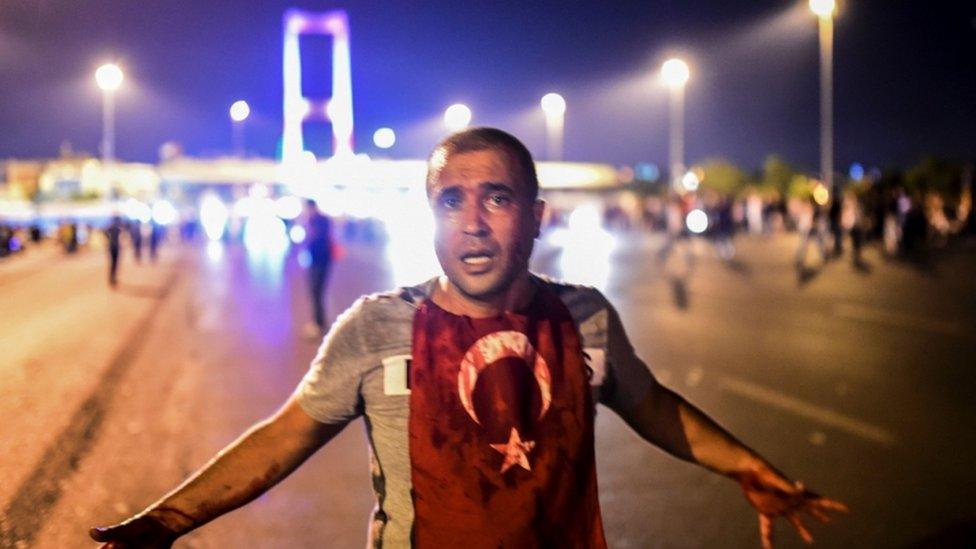Theresa May in Turkey: UK agrees £100m defence deal
- Published
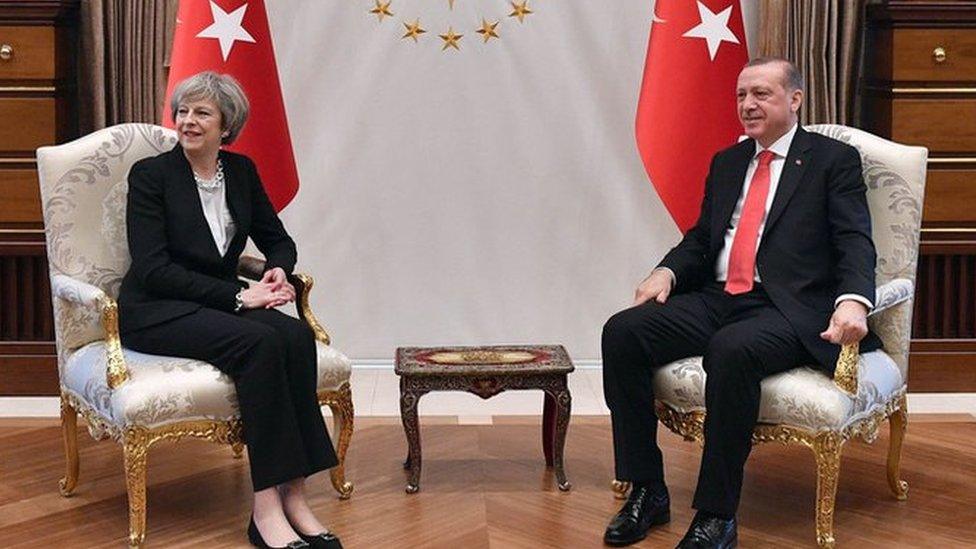
Britain has agreed a £100m defence deal to help develop fighter jets for the Turkish air force.
The announcement came as UK Prime Minister Theresa May met the Turkish president and prime minister in Ankara.
Mrs May said the defence agreement "underlines once again that Britain is a great, global, trading nation".
She said the UK would enhance trade relations with Turkey, and President Recep Tayyip Erdogan said his country would increase trade to $20bn (£16bn).
The defence agreement between BAE Systems and Turkish Aerospace Industries is for the Turkish Fighter Programme.
The deal would pave the way for a deeper defence partnership and help to safeguard key roles at BAE Systems, the announcement says.
Mrs May said: "It marks the start of a new and deeper trading relationship with Turkey and will potentially secure British and Turkish jobs and prosperity for decades to come."
BAE Systems chief executive Ian King said it "signals an exciting next step in relations between both Turkey and the UK".
The contract was announced after talks with Prime Minster Benali Yildirim.

Analysis
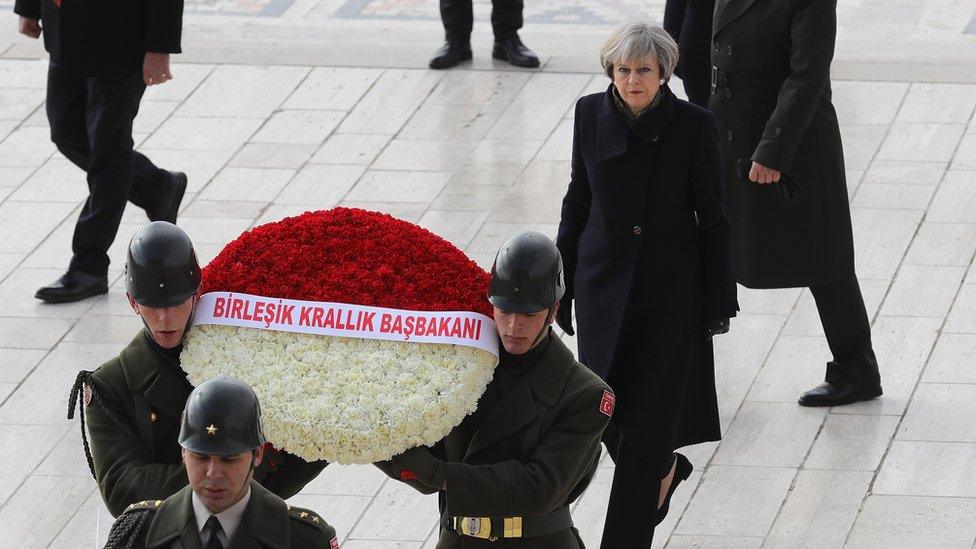
Theresa May laid a wreath at the tomb of Turkey's founder Mustafa Kemal Ataturk
By Mark Lowen, BBC Turkey correspondent
With trade top of the agenda, this defence deal will be welcomed by Theresa May as a sign of what post-Brexit Britain can achieve in bilateral talks.
Her government has been keen to increase British trade with another big economy on the cusp of the EU - so expect enhanced dealings with Turkey to come.
Security cooperation too was under discussion, with Europe depending on Turkey to defend its eastern flank.
And importantly, Mrs May raised the issue of human rights, perhaps placating her critics in the UK who said she was wrong to go cap in hand to Turkey.
More than 140,000 people have been arrested, suspended or dismissed since the failed coup and Turkey is the world's biggest jailer of journalists.
She will have had to broach the topic carefully with a president who gives critics short shrift.
But after talks with two controversial leaders, Mrs May will emerge from these two days more versed in delicate diplomacy than ever.

Mrs May stated that Turkey was one of the UK's "oldest friends" but much more could be done to build on that relationship.
For his part, Mr Erdogan announced that Turkey aimed to increase trade with the UK to $20bn a year from $15.6bn.
Mrs May said Britain and Turkey would establish a joint working group to prepare the ground for the UK's post-Brexit trading relationship.
As they spoke to the media, she said: "You mentioned, Mr President, the opportunities for enhancing the trade between our two countries. And we've discussed that.
"And we both want to build on our existing links. And I believe that doing so will be to the benefit of both our countries and for the prosperity of both our nations."
Mrs May described the discussions as "very fruitful".
Mr Erdogan said: "The UK and Turkey will enjoy a very different nature and a very different position."
Mrs May had come under pressure to raise human rights issues with Mr Erdogan on her first prime ministerial visit to Turkey.
A state of emergency has been imposed, involving waves of arrests, numerous media outlets closed and many public officials removed since the failed military coup in July 2016.
Mrs May said: "I am proud that the UK stood with you on July 15th last year in defence of your democracy.
"Now it is important that Turkey sustains that democracy by maintaining the rule of law and upholding its human rights obligations as the government has undertaken to do."
Mrs May and Mr Erdogan also discussed Cyprus, Syria and aviation security.
The prime minister said Turkey and Britain were working together in Syria to fight so-called Islamic State and create the conditions for peace.
Nearly a month ago, 39 people were killed in an attack on a New Year's Eve party at a nightclub in Istanbul.
IS said it was behind the assault and the militant group was linked to at least two other attacks in Turkey last year.
The prime minister arrived in Ankara from the US where she met US President Donald Trump.
Earlier, Brexit Secretary David Davis predicted a "round of global trade deals" would be "fully negotiated" within 12 to 24 months, coming into force when the UK left the EU.
The government plans to begin the formal two-year Brexit process by triggering Article 50 by the end of March.
- Published24 January 2017
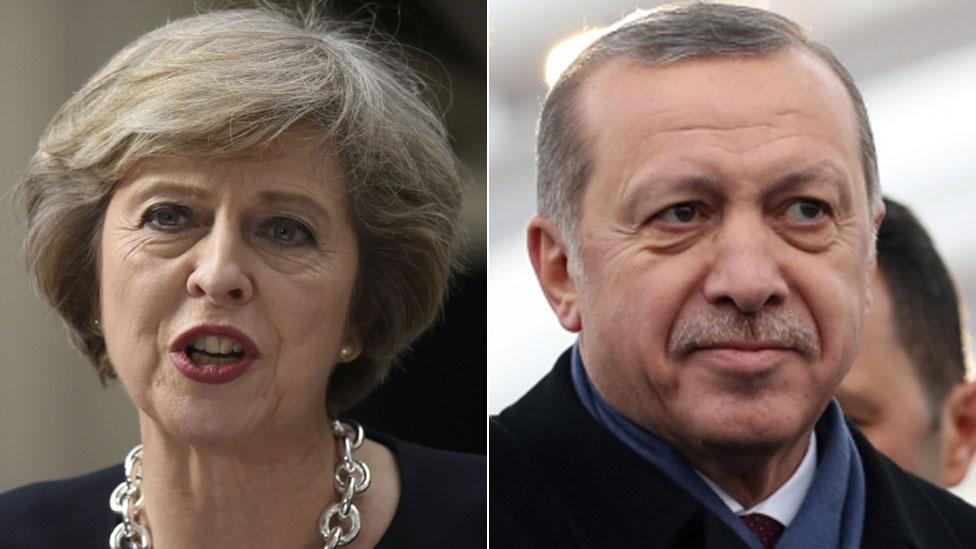
- Published21 January 2017
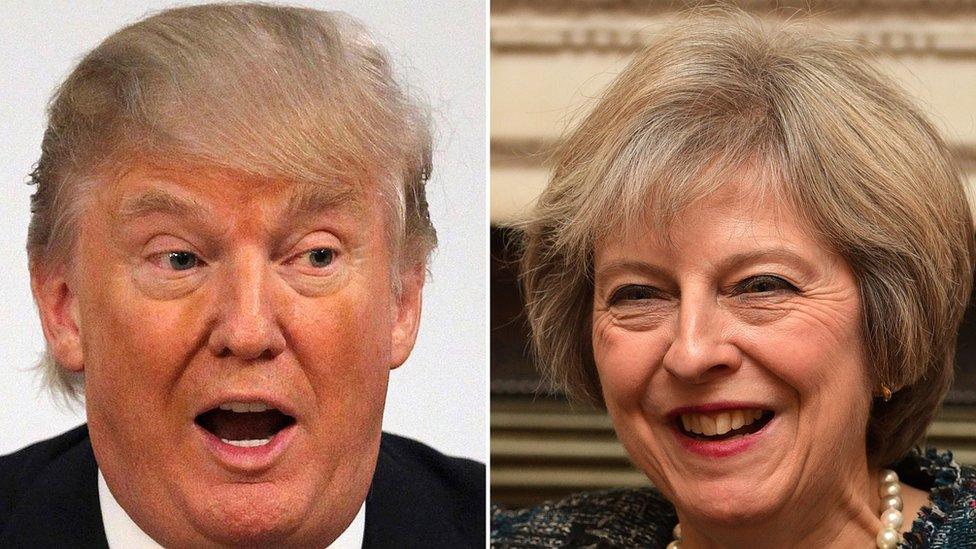
- Published24 March
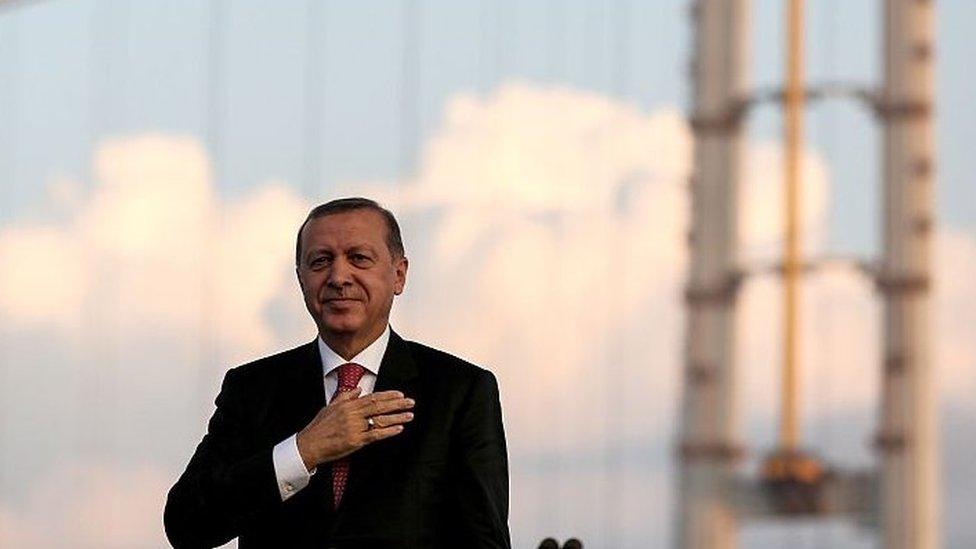
- Published17 July 2016
